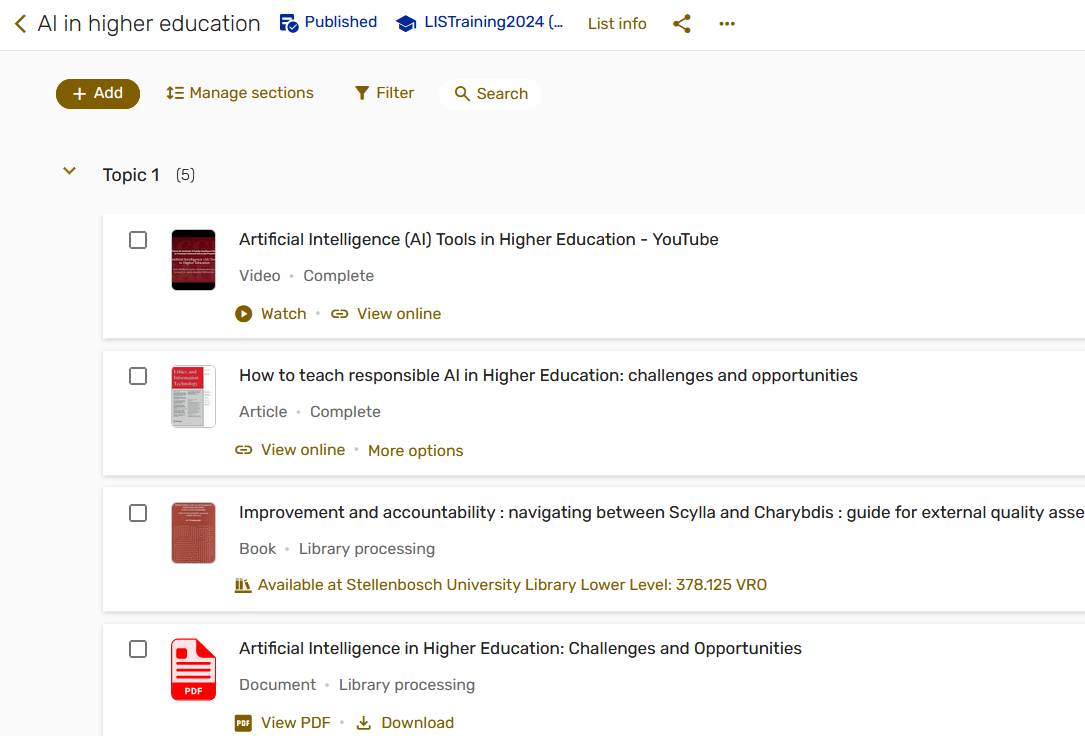| PageContent |
PageContent
What is Course Reading Lists?
In keeping with modern trends in higher education and to support remote learning, the Library and Information Service, SU in close consultation with academic departments and the Centre for Learning Technologies during the last term of 2020 implemented an online Course Reading Lists system. Course Reading Lists, powered by Leganto© from Ex Libris, enable lecturers to build and manage their reading lists directly from within Moodle.
|
|

|
Why use Course Reading Lists?
For lecturers
Course Reading Lists allows lecturers to build and manage their reading lists from within Moodle. Lecturers can include diverse content from the Library and elsewhere, such as books, articles, open educational resources, websites, streaming media, digitised content and course notes, in a single list. The reading lists are synchronised with existing library collections. In doing so, Course Reading Lists adds both print and electronic materials to the same lists and shows the real-time availability of both.
Student usage reports are available to help lecturers determine how effective their reading lists are and what materials students engage with most, through views, comments and likes. A discussion feature can also be enabled if you so choose, enabling students to participate in discussions on the reading list. With the annual roll-over function of Course Reading Lists, reading lists no longer have to be resubmitted to the Library on an annual basis – rather, they can simply be reused and updated.
For students
Course Reading Lists allows for hybrid learning and aims to improve the accessibility of up-to-date resource list materials for students’ ease of use in e-learning. The lists have a standardised format and structure in Moodle and are also therefore online accessible, from any device.
Students access Course Reading Lists from within their course in Moodle. They can interact with their lists by marking citations as read and liking those citations which they enjoy. If enabled by the lecturer, students can view upcoming due dates by when material needs to be read and can partake in student discussions on their lists. They can suggest content for their reading lists, add private notes and tags to their reading lists and report broken links to the Library.
Getting started
Start on your own
Training |

